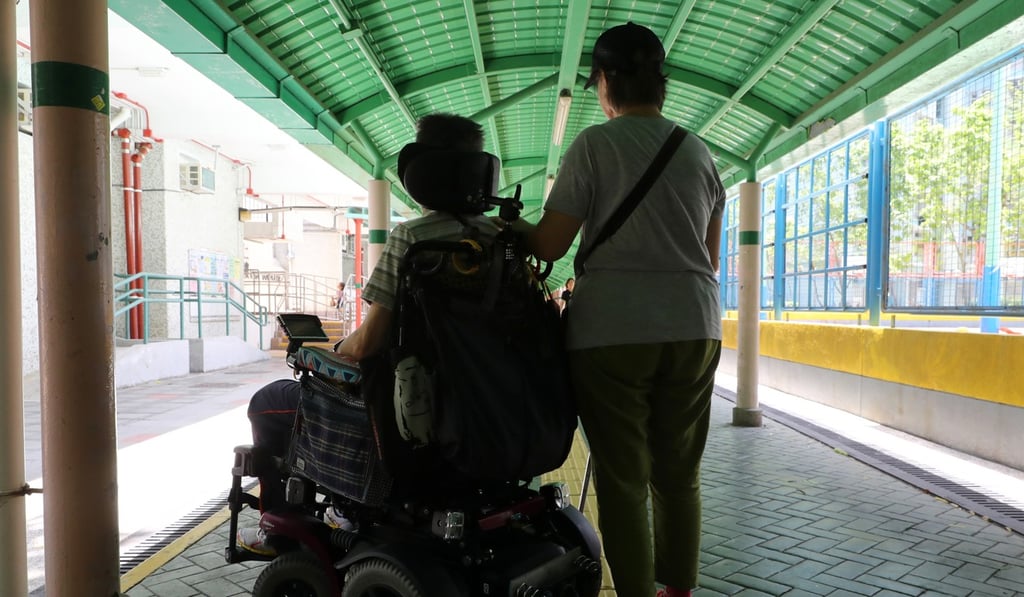Elderly people are dying on waiting lists for Hong Kong care homes, and proposed changes may make things worse
- Elderly applicants have to wait more than three years for a place in a residential care home in Hong Kong
- Planned changes to the system for assessing their care needs could make things worse, social workers, academics and elderly people themselves fear

Once a driver, Mr Chan, 77, has been confined to a wheelchair since he lost his footing and injured his spinal cord. For the past 15 years, his wife, a retired garment worker also in her 70s, has been his only carer.
Each day, besides handling household chores, she changes his diapers five times and bathes him at night, single-handedly lifting him in and out of the shower. The couple do not want to reveal their full names.
“I don’t know where I have found the strength,” says Chan’s wife, recalling how, for a few years before they moved into public housing, she even had to carry his wheelchair and help him down five flights of stairs.
This has taken a physical toll, and she finds it increasingly difficult to muster the energy to keep carrying out these tasks. She has cataracts in both eyes, and her legs are increasingly growing weak – twice recently, they gave out unexpectedly, causing her to fall in the street.

The Chans’ plight is just one example of the struggle elderly people face in Hong Kong today despite the government’s pledge to help those entering the autumn of their lives.
To relieve demand on institutional care, since 2014 the government has embraced the concept of ageing in place, meaning elderly people stay in the comfort of their homes and rely on home services or day care centres for support.
